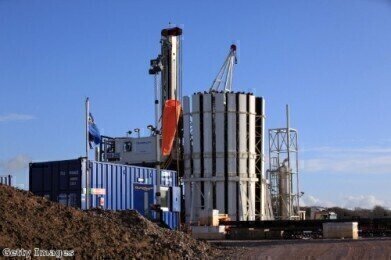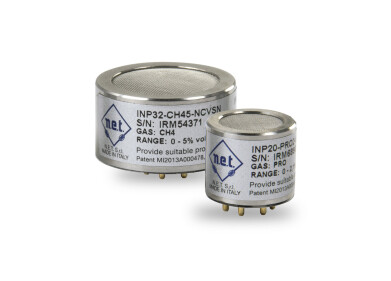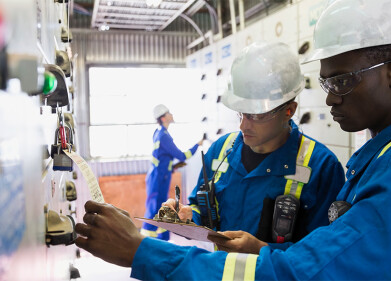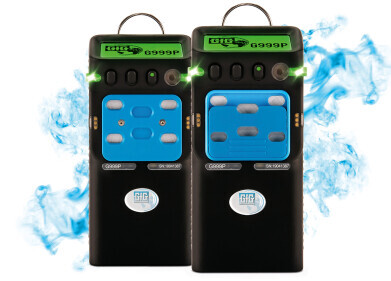-
 Shale-gas production involves methane leaks
Shale-gas production involves methane leaks
Gas detector
Methane leaks undermine the benefit of natural gas-based production
Apr 22 2013
The switching from coal-based energy production to natural shale-gas in US has been repeatedly celebrated. Reports have suggested that carbon dioxide emissions within the US since the switch have been drastically reduced. But as insights on methane leaks come to light, the question of exactly how beneficial the switch really is has been raised.
Natural gas has been praised by many as the future of American energy. It is a sustainable energy source that can reduce the production of greenhouse-gas emissions - in comparison to the emissions created by coal-based production. However, during the production, processing and transportation of natural gas, methane leaks occur. Methane is the main component of natural gas and - while it remains in the atmosphere for a much shorter time than carbon dioxide - is able to trap nearly 25-times more radiation over a 100-year period than carbon dioxide.
A recent study by the Proceedings of National Academy of Sciences of the United States of America (PNAS) suggests that if the methane leakage rate exceeds 3.2 per cent, natural gas loses its environmental advantage. Unfortunately it is difficult to accurately assess exactly how much methane is leaking from the natural-gas wells and pipelines in the US.
The authors of the study comment that "the weight of evidence suggests that significant leakage occurs during every life cycle of US natural gas systems". This life cycle includes drilling, production, processing and distribution and also depends upon the operators involved.
Whilst the leakage rate cannot be accurately measured, technology to stop the leaks does exist, although new regulations may be required in order to ensure it can be used by all relevant companies. Using plunger lift systems - enabling the removal of excess liquid from wells without releasing methane - and 'low-bleed' pneumatic devices, could reduce methane leakages by a third.
Digital Edition
PIN 25.6 Buyers' Guide
January 2025
Buyers' Guide Directory - Product Listings by Category - Suppliers Listings (A-Z) Articles Analytical Instrumentation - ASTM D7042: The Quantum Leap in Viscosity Testing Technology -...
View all digital editions
Events
Jan 25 2025 San Diego, CA, USA
SPE Hydraulic Fracturing Technology Conference and Exhibition
Feb 04 2025 The Woodlands, TX, USA
Feb 05 2025 Guangzhou, China
Trinidad and Tobago Energy Conference 2025
Feb 10 2025 Point Lisas, Trinidad
Feb 11 2025 Lagos, Nigeria


















